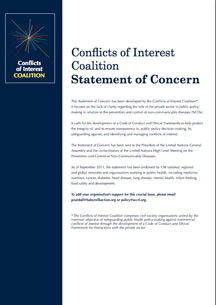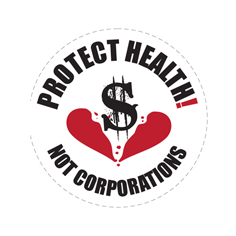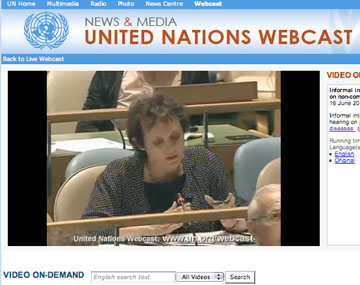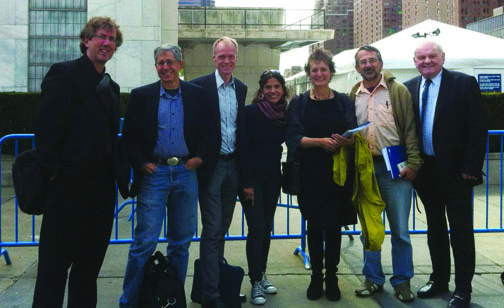UN and business
UN General Assembly tackles corporate-led diseases by snuggling up to business
In the course of 2011 Baby Milk Action was instrumental in bringing over150 Public Interest NGOs (PINGOs) together to call on the United Nations to stop businesses and their front organisations - Business Interest NGOs (BINGOs) - influencing and weakening health policies, an overarching issue that IBFAN has focussed on for decades at the World Health Assembly, Codex and elsewhere.
During 2011, the World Health Organisation (itself going through a major reform process) held meetings in Moscow and Geneva and, with the United Nations, in New York culminating in the High Level Meeting of the General Assembly and the creation of a Political Declaration on the Prevention and Control of Non-Communicable diseases (NCDs) - diseases such as cancer, heart and lung disease and obesity, that are largely caused, or made worse, by the marketing of foods, drinks and tobacco. These same industries were out in force at all the events under the ‘Civil Society’ umbrella - and hosting “Pepsi Breakfasts” and side meetings and presenting themselves as the natural ‘partners’ that can be trusted to help solve the NCD problem voluntarily. With so much money around and some industry-funded NGOs also promoting Public Private Partnerships (PPPs), these ‘voluntary’ softly-softly solutions sounded alluring to cash-strapped governments who are already facing opposition when implementing the Framework Convention on Tobacco. But as the massive costs for treating NCDs kick in, governments must take effective action soon.
In this context it was a challenge to get wording into the Political Declaration that explained the risks of partnerships with businesses that have a vested interest in the outcome and why the ‘voluntary’ approach could waste time, money and even make matters worse. The final text contains no explicit reference to conflicts of interest except in relation to tobacco. However, much of the problematic wording about private sector involvement in Monitoring and Evaluation was removed, and new wording about the need to control marketing of baby foods (Para 43i) and junk foods (Para 43f) was added.
The Conflict of Interest Coalition Statement endorsed by over 150 NGOs
Protect Health not corporations sticker brought along by El Poder del Consumidor, Mexico


Patti Rundall at the UN Interactive Civil Society Hearing, 16 June 2011
“When you have a multi-stakeholder panel, you inevitably lower your standards. I don’t think we would have got anywhere with infant feeding if we had had to do that, if the UN System had to bring its standards down to meet what the industry wants.”

Conflict of Interest Coalition members at the High Level Meeting, UN General Assembly, New York, Sept, 2011
From the left: Bill Jeffrey, CSPI Canada, George Hacker Global Alcohol Policy Aliance (GAPA, USA), Oystein Bakke (GAPA, Norway) Xaviera Cabada Barrón and Alejandro Calvillo (El Poder del Consumidor, Mexico) either side of Patti Rundall (UK), Derek Rutherford (GAPA, UK).







